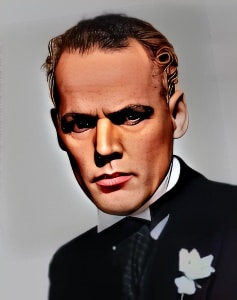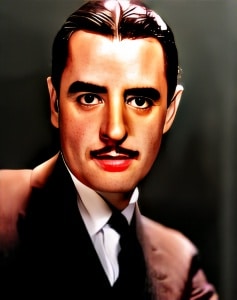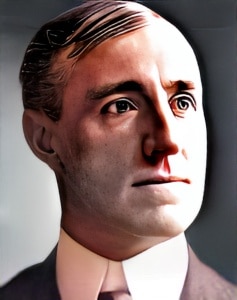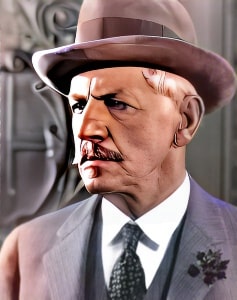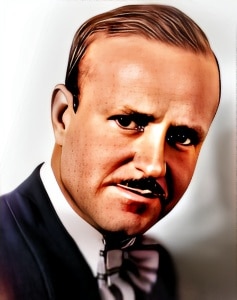 Lucien Littlefield (1895-1960) was an American actor known for his prolific career in film and television during the early and mid-20th century.
Lucien Littlefield (1895-1960) was an American actor known for his prolific career in film and television during the early and mid-20th century.
He was a versatile character actor who appeared in over 280 films and numerous television shows. Born on August 16, 1895, in San Antonio, Texas, Littlefield became a respected and recognizable figure in the entertainment industry, known for his distinctive appearance and memorable performances.
Littlefield’s career began in the silent film era, and he successfully transitioned to sound films. He possessed a unique look, with distinctive round, bespectacled glasses, and a bald head. These physical attributes often led him to play a variety of character roles, from professors and clerks to doctors and judges.
One of his earliest film appearances was in the silent film “The Fall of a Nation” (1916), directed by Thomas Dixon Jr. This film was a sequel to D.W. Griffith’s controversial “ The Birth of a Nation.” While it is remembered for its historical significance, Littlefield’s role showcased his early talent as a character actor.
Throughout the 1920s, Littlefield’s career continued to thrive in silent films. He appeared in comedies, dramas, and even westerns, solidifying his reputation as a reliable and versatile actor. His work in “Changing Husbands” (1924) and “Tin Hats” (1926) demonstrated his comedic abilities.
As the film industry transitioned to sound, Littlefield adapted and continued to find success. His unique appearance and distinctive voice made him memorable to audiences. He often played supporting roles in comedies and musicals, adding to the comedic elements of the films in which he appeared.
One of his notable roles was in “She Done Him Wrong” (1933), starring Mae West and Cary Grant. In this film, Littlefield played the character of the Salvation Army captain, a comedic and memorable figure.
While Littlefield primarily worked in supporting roles, he occasionally had opportunities to play more substantial parts. His portrayal of Dr. Meade in “Gone with the Wind” (1939), directed by Victor Fleming, is one such example. The film is a classic of American cinema, and Littlefield’s performance was a notable contribution.
In the 1940s and 1950s, Littlefield continued to work in both film and television. He appeared in various genres, from crime dramas to comedies, and his recognizable presence endeared him to viewers.
With the advent of television, Littlefield expanded his career to include roles in popular TV shows. His television work included appearances in series like “The George Burns and Gracie Allen Show” and “The Real McCoys,” showcasing his ability to connect with audiences in a new medium.
Lucien Littlefield’s career spanned several decades, and his adaptability as an actor allowed him to work in various genres and mediums. He left a significant mark on American entertainment, with his distinctive look and memorable performances endearing him to generations of viewers.
He passed away on June 4, 1960, leaving behind a rich legacy of work in both film and television. Lucien Littlefield’s contributions to the world of entertainment continue to be appreciated and celebrated by fans and scholars alike.
Loading live eBay listings...

